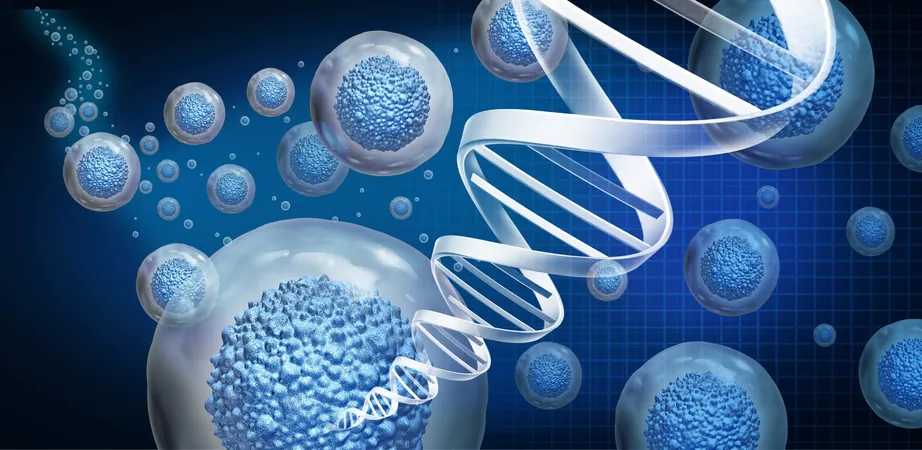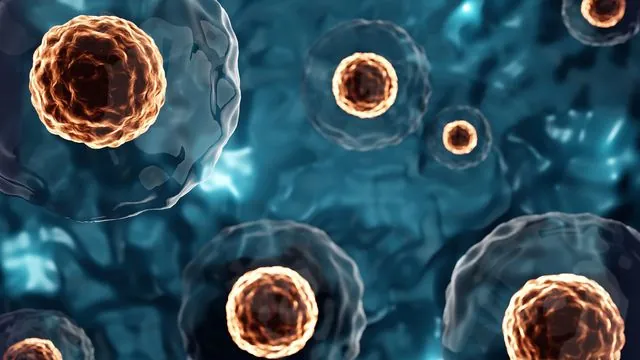
Revolutionary Breakthrough: Targeting PLA2G15 for Neurometabolic Disorders
2025-05-20
Author: Siti
Scenic Biotech and Stanford University Unveil Game-Changing Discovery
In an exciting leap forward in neurometabolic treatment, Scenic Biotech, alongside Stanford University, has identified PLA2G15 as a groundbreaking drug target in neurodegenerative and metabolic diseases, with potential applications for conditions like Niemann-Pick Type C. This significant finding was recently published in the prestigious journal *Nature*.
A New Hope for Niemann-Pick Type C Patients
The team's research reveals that PLA2G15, a specific lysosomal phospholipase, modulates bis(monoacylglycerol)phosphate (BMP)—a lipid associated with various neurodegenerative and metabolic disorders. By inhibiting PLA2G15, the study showed promising results: animal models of Niemann-Pick Type C—often dubbed juvenile Alzheimer’s—exhibited a slowdown in disease progression.
Restoring BMP levels not only rejuvenated lysosomal function but also alleviated debilitating neurological, hepatic, and splenic symptoms in these models. This pivotal research opens doors to treating not just Niemann-Pick Type C, but other grave conditions such as Batten disease and Frontotemporal Lobar Degeneration (FTLD), which currently have no effective therapies.
Scenic Biotech's Innovative Platform Validated
Dr. Vincent Blomen, Senior Director of Discovery Sciences at Scenic Biotech, heralded this publication as a substantial validation of the company's unique modifier therapy platform, designed to uncover novel drug targets using human haploid cells. He stated, “This research illustrates the transformative potential of targeting PLA2G15, showcasing improvements in neurodegeneration, liver damage, and overall survival in NPC models.” He further emphasized the possibility of this innovative target in developing treatments for a broader range of neurodegenerative diseases.
PLA2G15's Role in BMP Biology and Beyond
Dr. Monther Abu-Remaileh, co-author and Assistant Professor at Stanford, remarked, “BMP is crucial for lysosomal functions like lipid breakdown and cholesterol transport, yet little is known about its degradation process.” The evidence from their study reshapes our understanding, revealing that PLA2G15 indeed hydrolyzes BMP and presenting inhibition as a promising therapeutic strategy.
With this groundbreaking understanding, Scenic Biotech is advancing its lead small-molecule PLA2G15 inhibitor through preclinical development with plans for IND-enabling studies on the horizon. Soon, the company aims to embark on first-in-human trials, bringing renewed hope to those suffering from debilitating neurometabolic disorders.
A Bright Future for Neurometabolic Treatment
As research unfolds, the spotlight is on PLA2G15—heralded as a central player in lysosomal regulation. With the potential to transform the treatment landscape for several neglected diseases, this discovery marks just the beginning of a promising new chapter in medical science.




 Brasil (PT)
Brasil (PT)
 Canada (EN)
Canada (EN)
 Chile (ES)
Chile (ES)
 Česko (CS)
Česko (CS)
 대한민국 (KO)
대한민국 (KO)
 España (ES)
España (ES)
 France (FR)
France (FR)
 Hong Kong (EN)
Hong Kong (EN)
 Italia (IT)
Italia (IT)
 日本 (JA)
日本 (JA)
 Magyarország (HU)
Magyarország (HU)
 Norge (NO)
Norge (NO)
 Polska (PL)
Polska (PL)
 Schweiz (DE)
Schweiz (DE)
 Singapore (EN)
Singapore (EN)
 Sverige (SV)
Sverige (SV)
 Suomi (FI)
Suomi (FI)
 Türkiye (TR)
Türkiye (TR)
 الإمارات العربية المتحدة (AR)
الإمارات العربية المتحدة (AR)